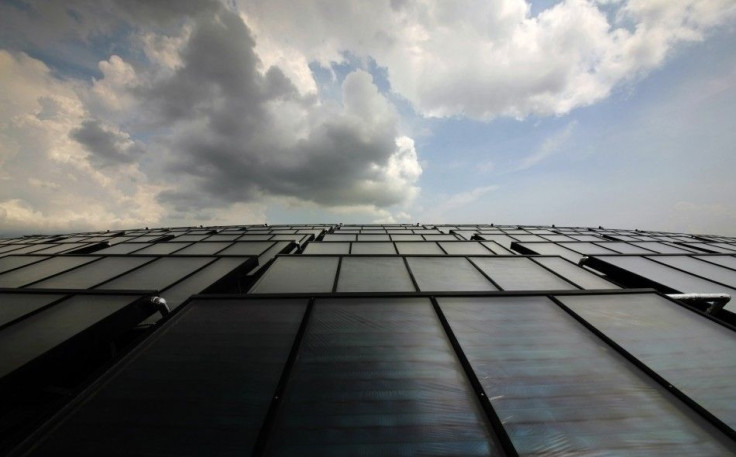Here's How Caffeine Gives Solar Cells An Energy Boost

Scientists from the University of California Los Angles (UCLA) and Solargiga Energy in China discovered that caffeine could be an efficient alternative to solar cells made of silicon.
"One day, as we were discussing perovskite solar cells, our colleague Rui Wang said, 'If we need coffee to boost our energy then what about perovskites? Would they need coffee to perform better?'" Jingjing Xue, a Ph.D. candidate in Professor Yang Yang's research group at the Department of Materials Science and Engineering at UCLA, said, recalling that the idea started as a joke over morning coffee.
This led the team to remember that coffee’s caffeine is an alkaloid compound containing molecules similar to the materials of perovskite of solar cells. Perovskite is responsible for the energy-harnessing function of solar power cells. There are previous studies of boosting the perovskite to become more stable and efficient, but no one had tried to use caffeine until now.
Thus, the team decided to focus on the novel idea. They added caffeine to the perovskite of 40 solar cells and used spectroscopy to make sure that the caffeine has successfully bonded with the material.
Research observations revealed that the caffeine formed “molecular lock” with the lead ions in the layer of the material. This resulted to increase the minimum energy for perovskite to react, boosting the solar cells efficiently from 17 percent to 20 percent. The “molecule lock” stayed to the material even if it was heated making the solar cells more stable.
"We were surprised by the results," Rui Wang, who is also a Ph.D. candidate in Yang's research group at UCLA, said. "During our first try incorporating caffeine, our perovskite solar cells already reached almost the highest efficiency we achieved in the paper."
Though caffeine works perfectly with the solar cells made with perovskite, researchers say that it will not be compatible with other types of solar cells. It is due to the unique structure of caffeine that “locks” with the perovskite precursors. Researchers conclude that this is an added advantage for the perovskite since its solar cells are already cheaper, more flexible than their silicon counterparts, and easy to manufacture.
"Caffeine can help the perovskite achieve high crystallinity, low defects, and good stability," Wang said. "This means it can potentially play a role in the scalable production of perovskite solar cells."
The researchers plan to investigate further on the properties of perovskite-caffeine material. Their study is published on Journal of Cell Press.
In order to continue enhancing the solar cells' efficiency and stability, the team next plans to further investigate the chemical structure of the caffeine-incorporated perovskite material and to identify the best protective materials for perovskites.
© Copyright IBTimes 2024. All rights reserved.





















